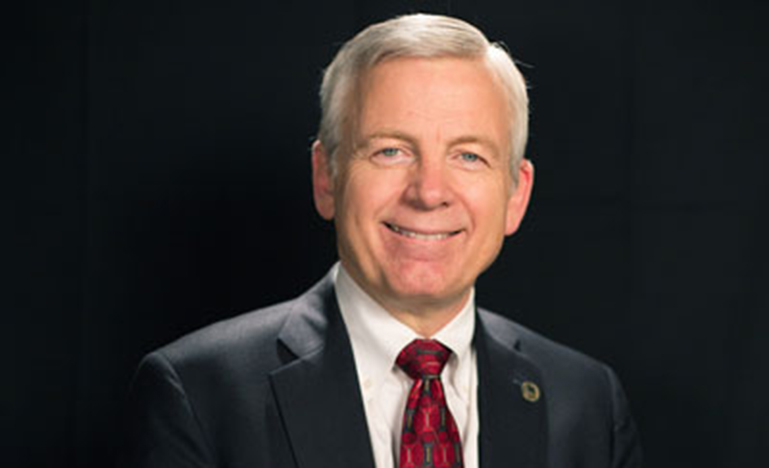TWU has played by the rules.
The President of TWU responds to critics of its new law school.

Editor's note: National is publishing the following article in response to a previous post written by Robert Peterson and Amy Sakalauskas on behalf of CBA’s Sexual Orientation and Gender Identify Conference (SOGIC). CBA members hold a range of views on approval of Trinity Western University Law School, and on the interpretation of the applicable law. The issue will continue to be debated over the coming months.
Justice Dickson, writing for the Supreme Court of Canada majority in Big M, defined religious freedom as follows:
The essence of the concept of freedom of religion is the right to entertain such religious beliefs as a person chooses, the rights to declare religious beliefs openly and without fear of hindrance or reprisal, and the right to manifest religious belief by worship and practice or by teaching and dissemination. (para. 94)
What happened to the right to freedom of religion that the law guarantees?
Trinity Western University is a fully accredited university, recognized and regulated by the British Columbia government. It was founded in 1962 as a junior college, gained full university status in 1984, and now offers over 40 undergraduate majors and 17 graduate programs. With 4000 students, it is the largest privately-funded Christian university in Canada. It has professional programs in its Schools of Business, Education, and Nursing. TWU has a strong research focus and recently added its fourth Canada Research Council Chair. Reported in The Globe & Mail Canadian University Report, TWU students consistently have given the university an A+ in “quality of teaching and learning.” Our graduates go on to careers in many areas, including work in law, business, politics, education, medicine, and humanitarian organizations.
The University welcomes students without discrimination. Students come from a wide variety of backgrounds and religions. One of the strengths of the University is its strong community. Part of fostering that community is having a Community Covenant so that everyone knows what the expectations are of faculty, staff, and students. The Community Covenant is rooted in respect for the human dignity of all, without exception. It encourages Christian virtues such as love, joy, and peace. The Covenant also requires that all members of the community act in a manner that respects historic Christian values, which include principles applicable to expressions of sexuality.
The Federation of Law Societies of Canada, the umbrella organization of provincial law societies, has established national standards for legal education. Its Canadian Common Law Program Approval Committee acts on behalf of provincial law societies in assessing and approving or denying all law school proposals. In 2012, after years of preparation, TWU applied to the Approval Committee for approval in respect of a new law school. As Trinity Western’s proposal came to be seen as controversial, the Federation further established a Special Advisory Committee with the mandate to determine if the Community Covenant gave rise to additional considerations.
The Special Advisory Committee considered over 25 submissions, including one from the Canadian Bar Association. Further, the Committee obtained a legal opinion from a noted constitutional expert. Together, these submissions contain a wide variety of opinions and canvass all of the arguments on the subject.
The Federation has done its job in evaluating the proposal, and in critically assessing the impact of the Community Covenant. At the end of an 18-month process, it granted preliminary approval, subject to a number of conditions that are not relevant to the current controversy. The proposal also went through an 18-month review process by the BC Ministry of Advanced Education. This lengthy process resulted in approval by the BC Minister of Advanced Education shortly after approval by the Federation.
As most Canadian legal practitioners know, a previous iteration of the Community Covenant was the subject of ligation in the 1990s culminating with a 2001 Supreme Court of Canada (8-1) decision in favour of Trinity Western. That case dealt with facts very similar to the present situation, in that the university was then seeking accreditation of a professional program in education. In ordering approval of the program, the Supreme Court stated:
Students attending TWU are free to adopt personal rules of conduct based on their religious beliefs provided they do not interfere with the rights of others. Their freedom of religion is not accommodated if the consequence of its exercise is the denial of the right of full participation in society.
In other words, Trinity Western students also have a right to the equal benefit of the law without discrimination. In its reasons, the Supreme Court recognized that Trinity Western contributes to the diversity of university education in Canada.
It is factually and legally significant that Trinity Western’s law school proposal has received endorsement by strong precedent from the Supreme Court of Canada, as well as thorough reviews from the Federation and Ministry of Advanced Education. Trinity Western has played by the rules. Proposed attempts to now change those rules, or to circumvent them, not only show disrespect for the rule of law, but diminish the importance of the Federation and ignore the stringent process of approval applied to TWU. It would be counterproductive for a law society in Canada to now disregard that stringent process by the Ministry of Advanced Education and the Federation. In addition, ex post facto changing the rules or applying new criteria will undoubtedly result in many concluding that the guarantee of freedom of religion in Canada is, at best, nominal.
Trinity Western, as well as other religious institutions following this unfortunate process, deserves better treatment from the provincial law societies, Canadian Bar Association, and the legal profession in Canada.


